Mosquitoes in Greece can be a nuisance, and they can even ruin your holiday! Here is how to protect yourself from mosquitoes during your Greek vacation.
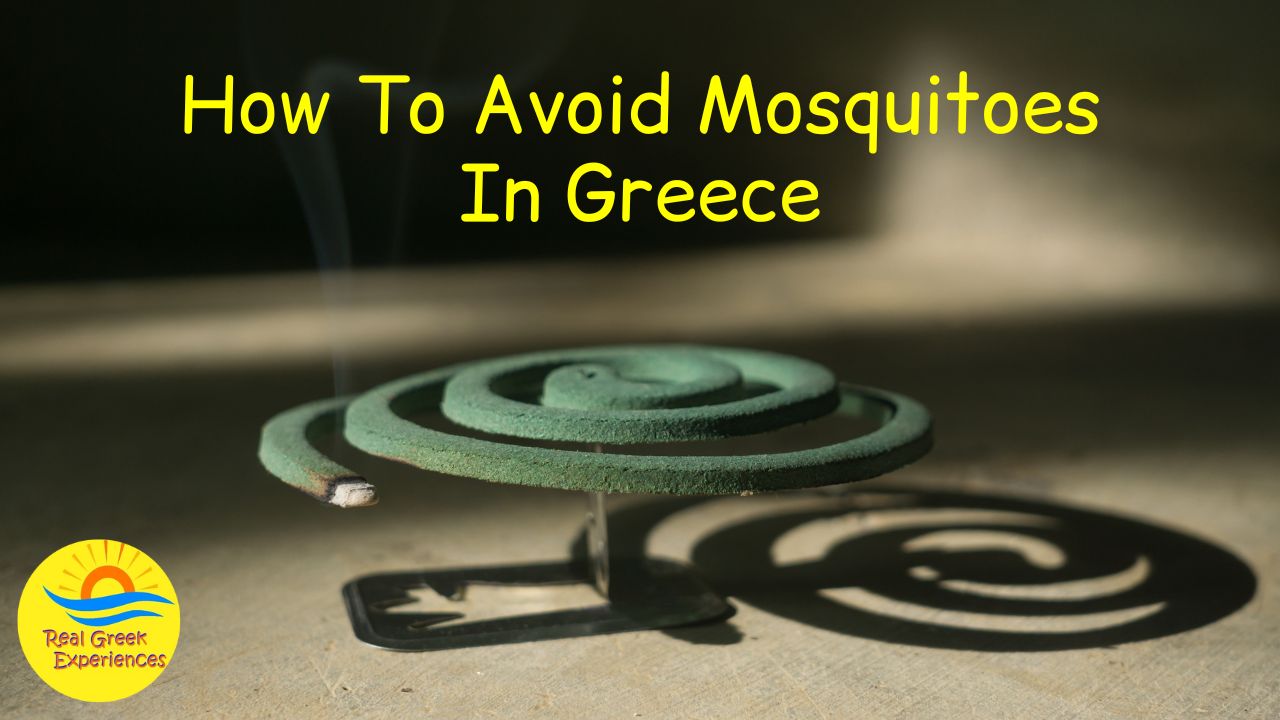
Are there mosquitoes in Greece?
Yes, there are mosquitoes in Greece. Sometimes, they can drive you crazy and almost ruin your holiday!
Mosquitos in Greece are very rarely dangerous. However, they can be extremely annoying, and can make your time in Greece much less enjoyable.
I’m Greek, and I’ve written this guide with mosquito prevention tips, to help you survive mosquitoes in Greece!
Disclaimer: I am not a doctor, chemist or pharmacist. I only wrote this article to help you with some remedies for mosquitoes in Greece, as I’ve been dealing with them since I was a kid! Please always check with a suitable health professional, either in your own country, or in Greece.
When and where do mosquitoes appear in Greece?
You’ll find mosquitoes all over Greece. However, islands and coastal areas with lots of trees, humidity, and stagnant waters, are more prone to the little annoying creatures.
Popular places like Corfu, Kefalonia, Skiathos and Skopelos can be particularly badly affected. The lush vegetation and nature reserves are amazingly pretty, but unfortunately they attract more mosquitoes than some other areas of Greece.

Mosquitoes mostly thrive during the summer months. They are more active during sunrise and sunset, and less likely to come across during daytime.
Finally, you will rarely find mosquitos when it’s windy, as the wind affects their flying. Maybe the meltemi wind in the Cyclades islands isn’t too bad after all!
So, here are a few ideas that will help you protect yourself from mosquitoes in Greece.
Preventive Measures Against Mosquitoes While In Greece
There are several ways to reduce your risk of being bitten by mosquitoes in Greece while on holiday. Here are a few useful tips:
1. Apply mosquito repellent on your skin
There are several products which you can apply on your skin, that promise to keep mosquitoes away. Granted, some of them smell horribly!
The most effective mosquito repellents are considered to be those containing DEET, Picaridin or IR-3535. As these are chemical substances, it’s important to follow the instructions carefully and never exceed the recommended dose.
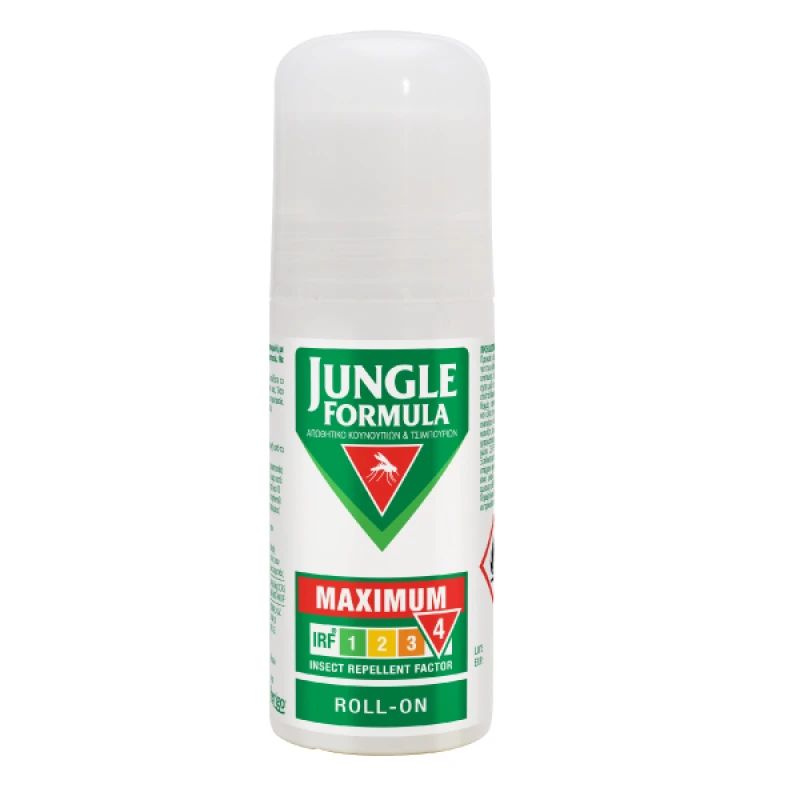
A wide range of natural repellents are also available. You can look for products containing essential oils like citronella, lemon, lemongrass, eucalyptus, peppermint, geranium, lavender, clove, basil, or tea tree oil.
These scents work great when it comes to repelling mosquitoes. At the same time, you will need to avoid wearing perfumes or other lotions, as mosquitoes are attracted to sweet scents.
Mosquito repellent brands
Depending on where you live, you will be able to find a range of mosquito repellent products. Ingredients and brand names may vary from country to country.
Popular mosquito repellent brands that you can get in Greece include Jungle no 4, Autan, Repel, Crilen, Fleriana, Cer’8 and Korres. You can find them at most chemists and supermarkets, and also some tourist stores.
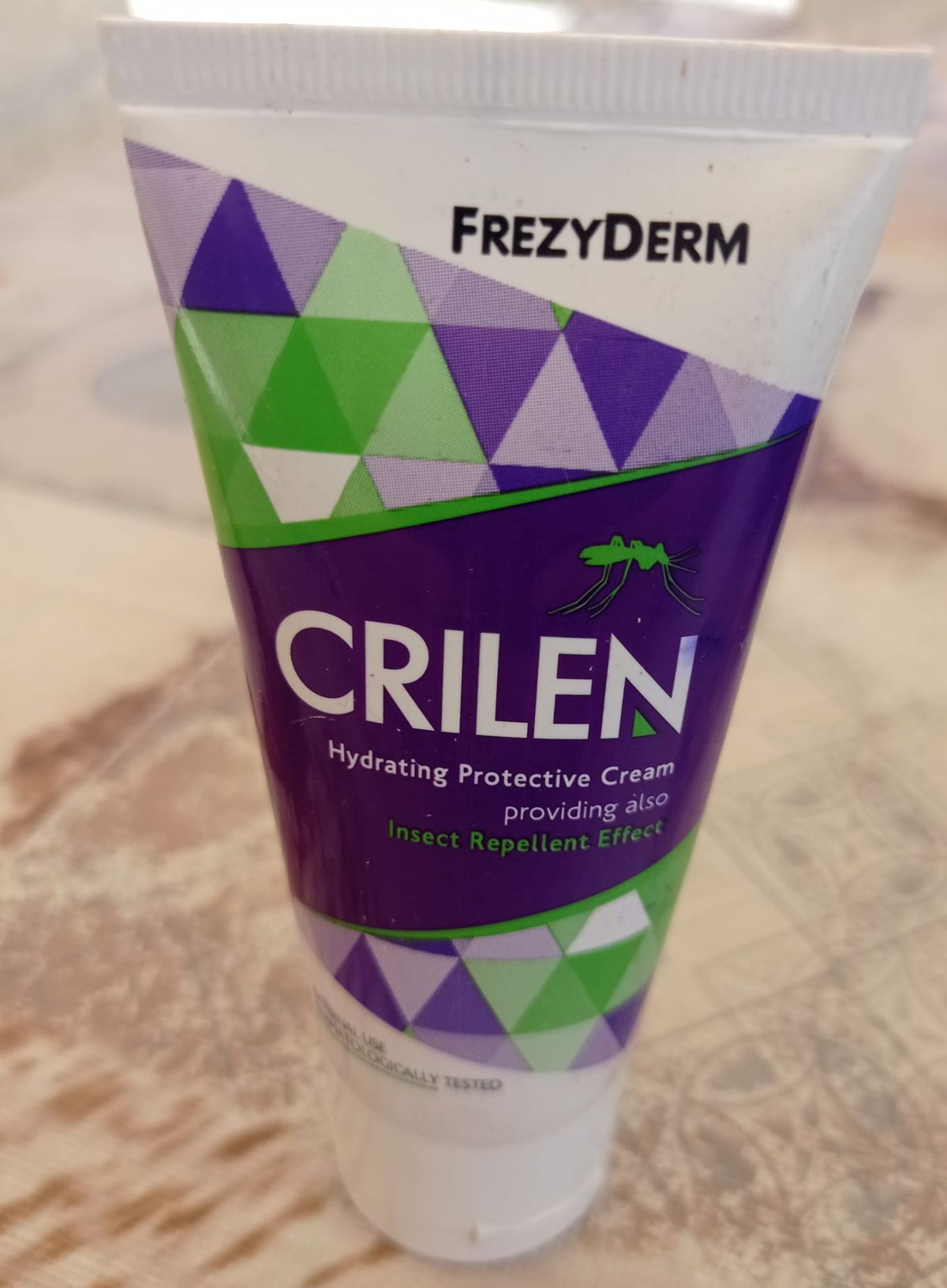
Some other brands that people swear by are Avon Oh So Soft spray, Incognito, Buzz Off, Odomos and Mosquito Milk Insect Repellent. If these work for you, make sure you bring them from home.
Not all repellents work for everyone. So, if one isn’t a good fit for you, try another one. Though, unfortunately, sometimes mosquitoes seem to completely ignore the bug spray. But at least you’ve tried!
2. Choose your clothes wisely
Did you know that mosquitoes are attracted to dark colors? Opt for light-colored clothes, which seem to deter mosquitoes.
It’s best to cover your arms and legs whenever possible, by wearing long-sleeved shirts and trousers or long skirts. Though, arguably, you might find them too warm for Greek summers.
Another idea is to spray your clothes and even bed linens with citronella oil diluted in water. Some people use permethrin, a pesticide suitable for use on fabrics.
For extra protection, you can also wear a mosquito repellent bracelet – they come in many different colours!
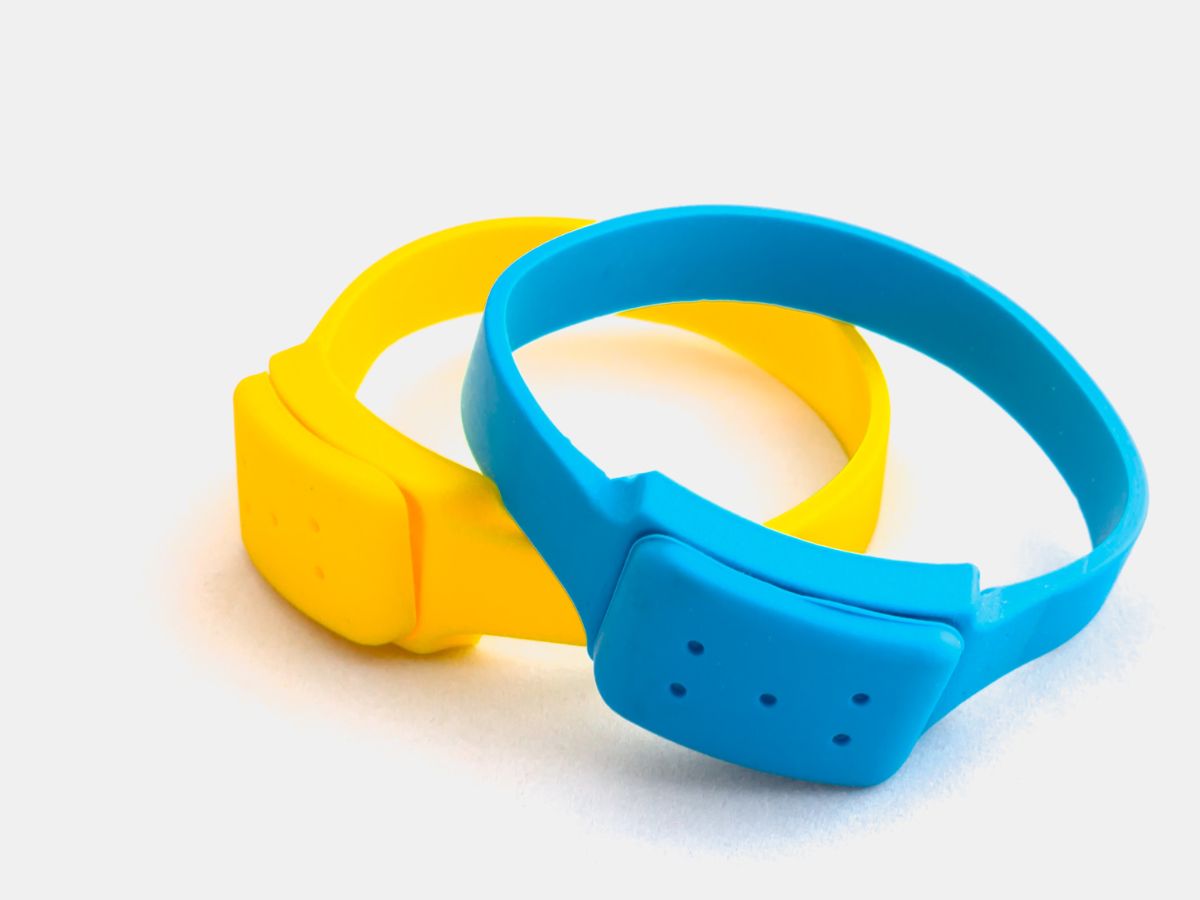
3. Try to find a room with mosquito screens on the windows
Placing mosquito nets on the windows and doors is the number one way to stop these tiny insects from getting in your room. So, when you are looking for accommodation, check if you can find a room with mosquito nets.
If your hotel doesn’t have those, and you are particularly vulnerable to mosquito bites, try to keep windows and doors closed as much as possible. It’s surprisingly easy for mosquitoes to sneak in!
4. Turn on the fan or air-condition
If the room you are staying at has a fan, use it. Apart from helping to cool the space down, it will also make life difficult for mosquitoes.
Using the air-condition can also help. Again, remember to keep the windows closed, not only to lock the mosquitoes out, but also to save energy.
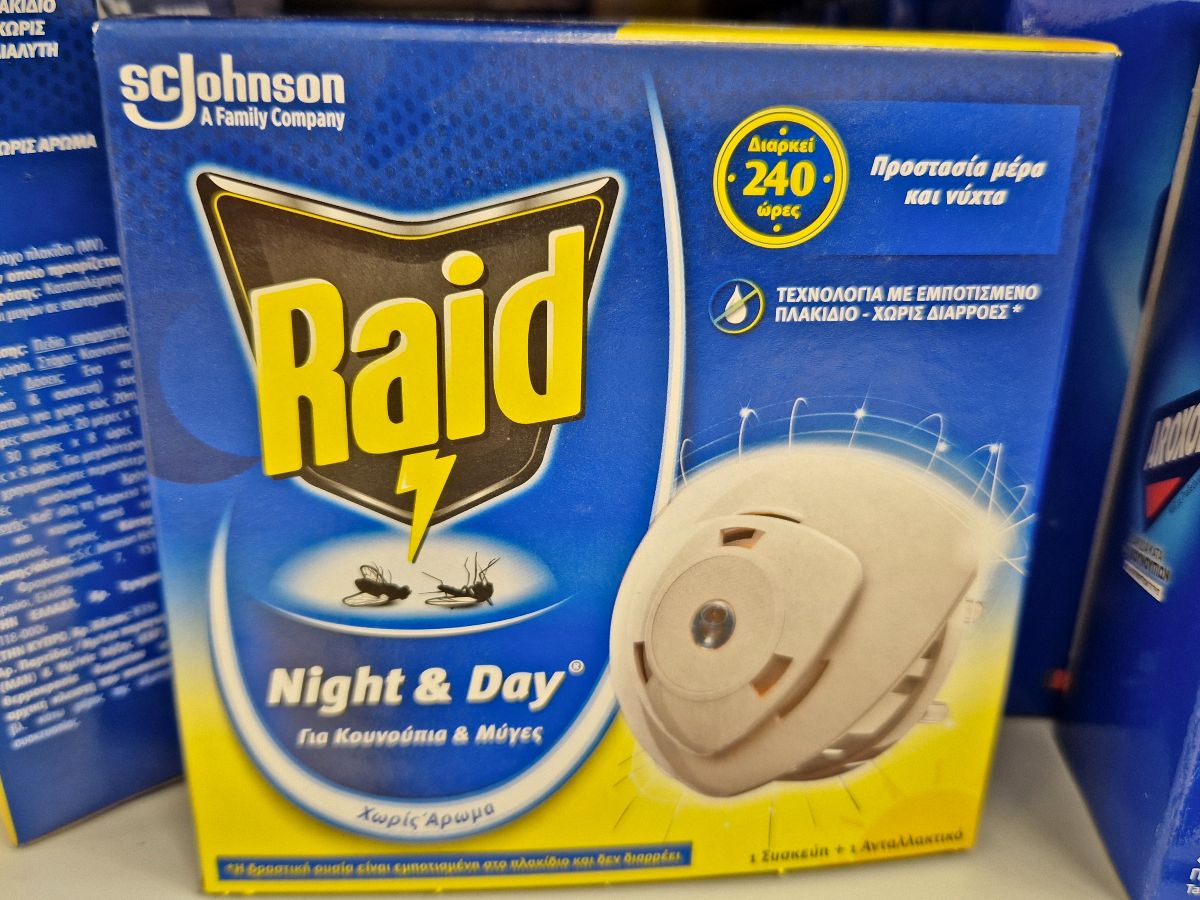
5. Use a coil, mosquito tablet or citronella scented candle
In addition to using mosquito repellents on your skin, you can also use products in your hotel room or apartment.
In fact, many hotels and rooms offer a range of anti-mosquito products, such as the following:
- Plug-in machines where you place an anti-mosquito tablet
- Plug-in machines that contain a liquid repellent
- Anti-mosquito coils, which are only suitable for outdoor use
- Citronella-scented candles

Some people use a diffuser, where they burn essential oils, for example citronella, lemongrass, lavender or peppermint. To be fair, I’ve never seen this in a hotel room, but I’ve got one at home!
6. Be extra careful during sunrise and sunset
Remember that mosquitoes are most active during sunrise and sunset. If you are out during those times of the day, be extra careful.
Cover your arms and legs, and apply some more repellent on. If you are particularly sensitive, avoid going out at those times.
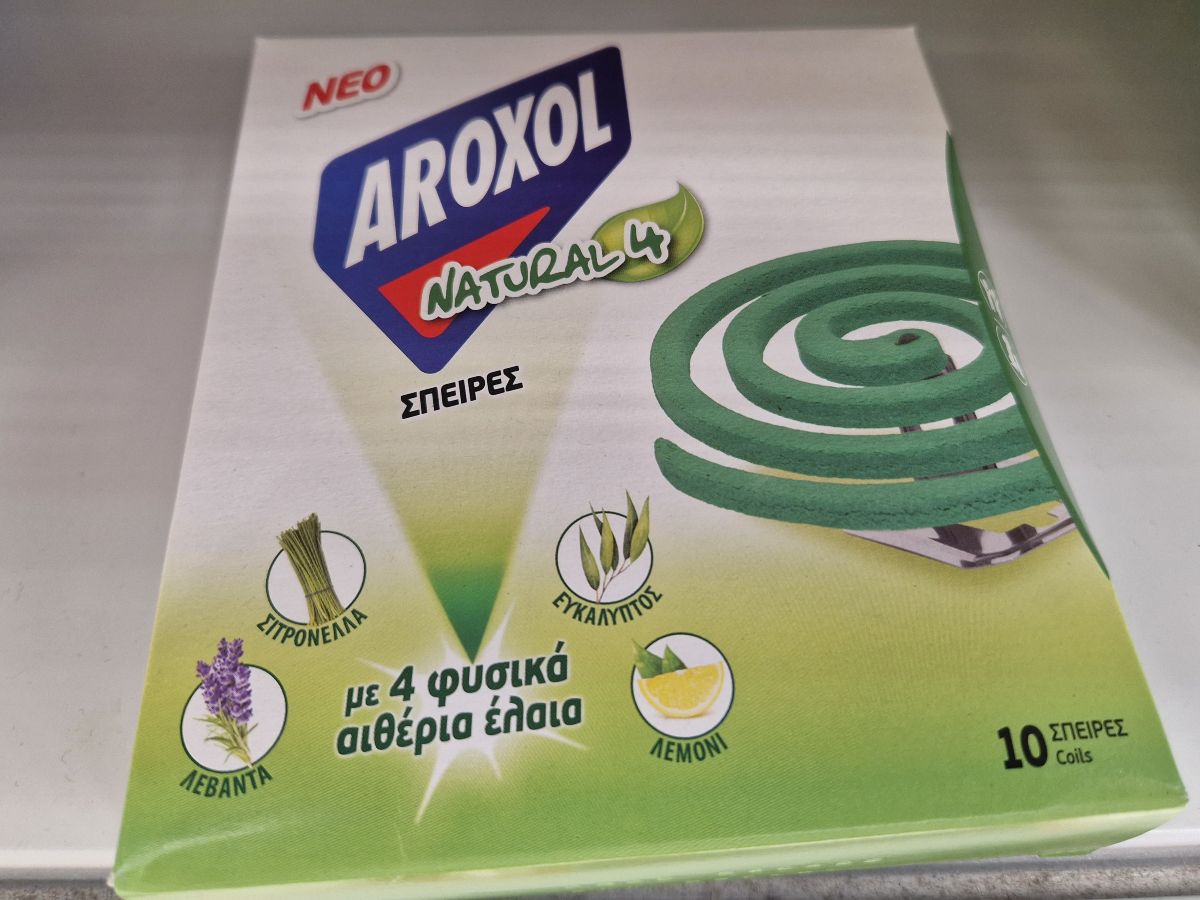
7. Stay away from greenery
Finally, mosquitoes are attracted to greenery, grassland, trees, gardens and standing water. Avoid those as much as you can, especially during sunrise and sunset.
This is exactly why islands like Corfu or Skopelos have more mosquitoes than Santorini or Milos. Mosquitoes are attracted to the lush vegetation, which they won’t find so easily on the Cyclades islands.
What To Do If You’ve Been Bitten By A Mosquito In Greece
Even if you try your best, you may still be bitten by a mosquito, or a few. Mosquito bites are itchy, at best, and swollen / painful, at worst.
If you’ve been bitten, first of all try not to scratch the bite. Scratching can make it worse and cause more itching, inflammation or even infection.
Here are some remedies to ease the discomfort:
1. Wash the mosquito bite and apply a cold compress
To begin with, you can wash the bite with soap and water. This will keep it clean and reduce the risk of infection.
Applying a cold, damp cloth or an ice pack to the bite will usually reduce the itching. If you are not particularly sensitive to mosquitoes, this might even be enough. A bit of toothpaste can also help.
2. Apply a soothing lotion
In case the irritation is not going away, you can apply a soothing lotion or cream on the most affected area.
Some of the active ingredients in over-the-counter calming lotions are ammonia, aloe vera gel, tea tree oil, and calamine lotion. These will help calm down any minor bites, and you can reapply as needed.

You can find those easily at pharmacies, but also supermarkets and tourist shops.
3. Talk to a pharmacist and get some antihistamines
If you are particularly sensitive to mosquitoes, the bites might become red and swollen, and you are likely to itch a lot. In this case, it’s best to consult a pharmacist.
Depending on the type of bite, the pharmacist may suggest Fenistil, Elocon, Fucicort or another pharmaceutical product. These contain a small amount of antihistamine or hydrocortisone, which will help reduce the itchiness, inflammation and swelling.
The pharmacist might also suggest taking antihistamine tablets for a few days. Antihistamines work by blocking a natural substance (histamine) that your body makes during an allergic reaction. These remedies will definitely help calm the infected mosquito bites down.
Note: If you are experiencing more serious symptoms, such as joint or muscle pain, headache, dizziness, fever, a general rash, or extreme weakness, seek medical attention immediately. According to the health authorities, these could be signs of the West Nile Virus, which can be life threatening.
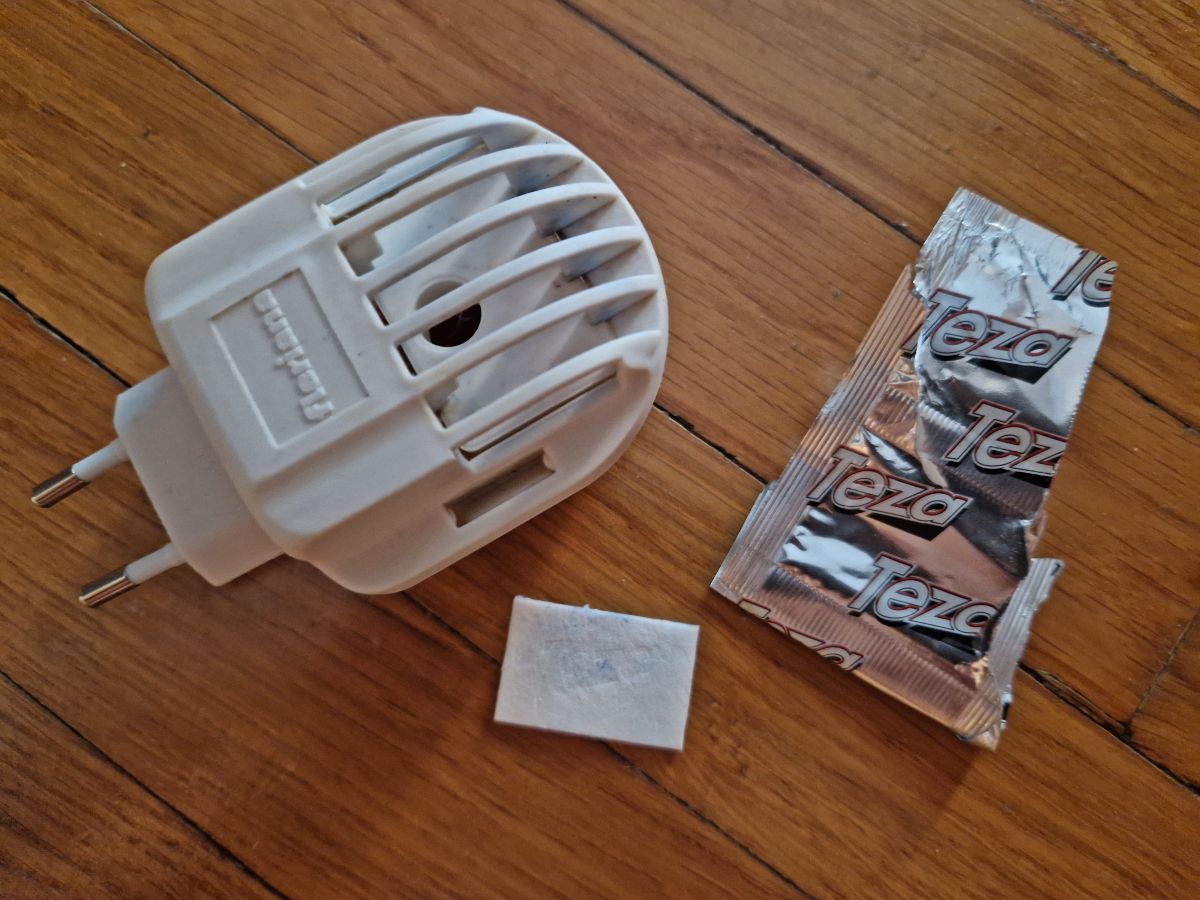
What sorts of people do mosquitoes prefer?
You may wonder why some people seem to attract mosquitoes like crazy, while others manage to avoid mosquito bites completely! Well, here is some insight 🙂
It appears that people with a larger body size are more attractive to mosquitoes, as they sweat more and also produce more carbon dioxide. Another factor is the type of our skin microbiota.
For some more information, have a look at this article.
Is there anything I can do before my trip to Greece to avoid mosquito bites?
There is some anecdotal evidence that taking vitamin B supplements or garlic capsules for a few weeks before and during your trip to Greece, could potentially make a person less attractive to mosquitoes.
To the best of my knowledge, there is no scientific evidence for either of these, but it would be something to discuss with your doctor or pharmacist at home.
Some doctors suggest taking a daily antihistamine tablet in the two-week period before going to Greece. In this case, the purpose is to help build resistance to future bites. So, even if you end up getting bitten by mosquitoes in Greece, they will help reduce itching and inflammation.
Again, before you take any of those medications and supplements, please discuss with your doctor and pharmacist. They can give you solid advice on what is most suitable for you.

FAQs about mosquitoes in Greece
Here are some questions that readers have asked in the past:
How do you treat mosquito bites in Greece?
If you get bitten by mosquitoes in Greece, go to the nearest pharmacy. Depending on the severity of your bites, the pharmacist will suggest anything from a simple soothing lotion with aloe vera or ammonia, to antihistamine tablets.
What months are mosquitoes worse?
In Greece, mosquitoes are worse from late April to early November. They thrive in wet and humid environments, and are more active around sunrise and sunset.
Can mosquitoes bite through clothes?
Yes, mosquitoes can bite through clothes, though they find it easier to bite on bare skin. Overall, thick, loose fabrics will offer better protection than skin-tight or very thin fabrics.
Are there any mosquito borne diseases in Greece?
According to the Greek Health Ministry, some mosquitos in Greece have been found to carry the West Nile virus (WNV), though the infection rate is low. Symptoms typically include a combination of fever, headaches, joint and muscle pains, rash, and fatigue / weakness.
Are dengue fever or the Zika virus prevalent in Greece?
Mosquitoes can also transmit dengue fever and other viruses, such as Zika and Chikungunya viruses. These are extremely rare in Greece, with only a handful of reported cases over the last decade, all of which were imported from abroad.
More guides about Greece
Here are a couple more guides about Greece that you will find helpful:
- What to pack for Greece for every season
- Why you shouldn’t flush toilet paper in Greece
- Tips for staying cool in the summer in Athens
- Top ten tips for visiting Greece in summer
- My Greek island holiday mishaps – just for a laugh, I hope none of those happens to you 🙂
 Hi! I’m Vanessa from Athens. I don’t seem to attract mosquitoes nearly as much as my partner Dave, who keeps himself free from mosquito bites by using a combination of pretty much all of the above! If something else has worked for you, please leave a comment below. Follow me on FB for more Greece-related tips!
Hi! I’m Vanessa from Athens. I don’t seem to attract mosquitoes nearly as much as my partner Dave, who keeps himself free from mosquito bites by using a combination of pretty much all of the above! If something else has worked for you, please leave a comment below. Follow me on FB for more Greece-related tips!
